Take a Class
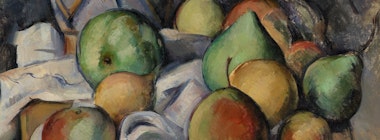
Study art history at the Barnes, a leader in art education since 1925. Come learn in our galleries, or take classes online using our immersive, state-of-the-art platform that brings you closer to the work than ever before.

The Art of Color
Explore how artists use color to shape meaning, emotion, and structure in this self-paced class.
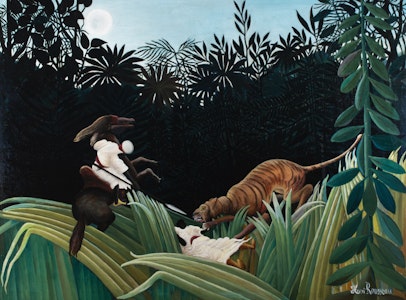
In Focus: Henri Rousseau
Study Rousseau’s enigmatic paintings using our state-of-the-art interactive platform. Zoom in on his strange imagery, and discover why Rousseau continues to captivate.
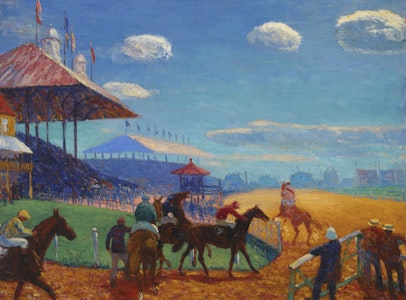
Collection Concentration: Exploring American Arts
Explore American art and identity—from Glackens and Pippin to folk crafts and design. Instructor: William Perthes
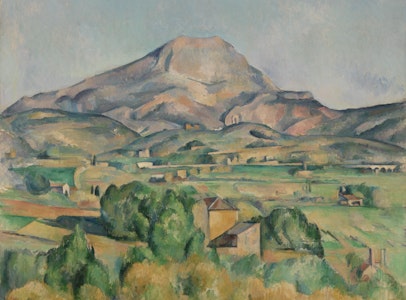
The Elements of Art
Learn basic aesthetic principles and discover art’s communicative power by studying works in the Barnes collection. Instructor: Kaelin Jewell
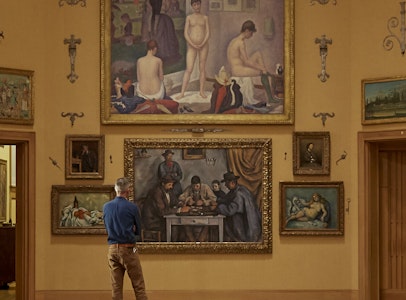
The Art of Looking: An Introduction to the Barnes Method
This interactive online course will teach you the basics of the Barnes Method of studying art, at your own pace.

Art and Censorship in the 21st Century
Art censorship is on the rise worldwide. Explore the causes and implications of this alarming trend. Instructor: Gareth Harris

Sound and Color: Listening to Cézanne’s Paintings
Connect Cézanne’s paintings to compositions by Mozart, Beethoven, and others in this sensory-rich workshop. Instructors: Alison Boyd, Kaelin Jewell

Exhibition Seminar: Henri Rousseau: A Painter’s Secrets
Explore the dreamlike imagery of Henri Rousseau up close in our exhibition gallery. Instructor: Martha Lucy

Exploring Impressionism: Modernity Painted in Broad Strokes
Learn about the radical artists who broke from tradition to represent the modern world around them. Instructor: Larissa Bailiff

In the Studio with Degas
Explore Degas’s process and learn classic drawing methods in a hands-on setting. Instructor: Michael Kowbuz

The Harlem Renaissance in Philadelphia
Uncover Philadelphia’s connections to the Harlem Renaissance and the movement’s enduring legacy on the city. Instructors: Alison Boyd, Zita C. Nunes

Close-Looking Immersion: Manet’s Laundry
Using a meditative approach, this hour-long session offers an in-depth look at Manet’s masterful composition. Instructor: William Perthes

The Art of Display: Exploring the Barnes Ensembles
Uncover connections hidden in plain sight by studying Dr. Barnes’s enigmatic displays of art at your own pace.

The Gilded Age: Art, Industry, and the Making of American Culture
Explore the relationship between art and industry during the Gilded Age and the era’s cultural legacy. Instructor: Caterina Y. Pierre

The Nabis: Late 19th-Century Prophets of the New
Explore the legacy of this group of early modern trailblazers. Instructor: Larissa Bailiff

17th-Century Dutch Art’s “Holy Trinity”: Hals, Rembrandt, and Vermeer
Examine Hals, Rembrandt, and Vermeer through deep-zoom analysis and cultural context. Instructor: Wayne Franits

Close-Looking Immersion: Gritchenko’s Fortified Town
Take a deep dive into this cityscape by Ukrainian artist Alexis Gritchenko. Instructor: Kaelin Jewell

Being Present with Art: Cultivating Balance for Spring
This course is an opportunity to immerse yourself in the collection and learn mindfulness-based stress reduction meditation. Instructor: Roksana Filipowska
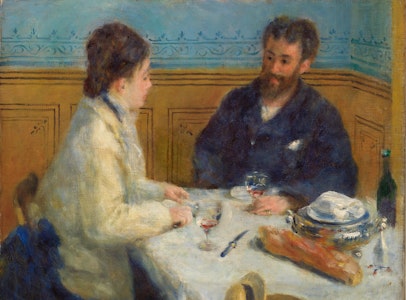
In Focus: Pierre-Auguste Renoir
An introduction to Renoir’s life and work, with interactive videos that let you explore his canvases up close. See why Renoir is more than just rosy cheeks and cute babies.

The Art of the Late Medieval Book: Illuminated Treasures at the Met
Explore some of the great Western medieval manuscripts in the museum’s collections. Instructor: C. Griffith Mann

The Restless Modernism of John Singer Sargent
Explore Sargent’s artistic evolution, from his Paris training to his “restless” portraits in London, and consider his place in modern art. Instructor: Susan Sidlauskas

Size Does Matter: A History of Miniatures in Art
What makes miniatures so fascinating? And what compels artists to work on such a tiny scale? This course shines a spotlight on the art of miniatures. Instructor: Julie Steiner

Monet at Giverny
Explore Monet’s final decades at his home and gardens in Giverny, where he created his iconic Water Lilies series. Instructor: Martha Lucy

Close-Looking Immersion: Cézanne’s Ginger Jar
Discover hidden details in this hour devoted to observing and discussing the Cézanne still life. Instructor: William Perthes

Discovering Matisse’s Studio with Goldfish
Look closely at Matisse’s vibrant studio scene and its daring composition. Instructor: Cindy Kang
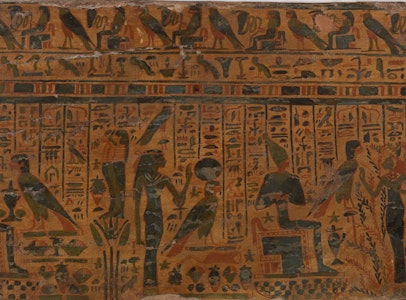
In Focus: The Ancient World
A fresh look at ancient art. Learn about works from ancient Egypt, Greece, and Rome.

Abstraction in Modern Art
Studying artists as diverse as Hilma af Klint, Paul Klee, and Joan Miró, this course explores abstraction between the 1900s and 1950s. Instructor: Francesca Ferrari

Close-Looking Immersion: Renoir’s Young Mother
Take a deep dive into what is perhaps Renoir’s modern, secular take on the Madonna and Child subject. Instructor: Kaelin Jewell

Decades of Change: American Art and Culture 1950–70
See how postwar American art reflected innovation, protest, and social change. Instructor: Matthew Palczynski

The Hudson River School in Context
Explore 19th-century landscape painting and its politics through deep-zoom analysis. Instructor: William L. Coleman

Exhibition Seminar: Freedom Dreams
Discuss Black artistic futures and representation in the exhibition Freedom Dreams. Instructors: James Claiborne and Maori Karmael Holmes

Sound and Color: Music and Landscape
Discover how composers and painters intertwined sound and scenery in art. Instructor: William L. Coleman

Cézanne: The Battle of the Bathers
Compare Cézanne’s Bathers paintings through guided close looking and deep-zoom study. Instructor: Naina Saligram

Sicily: Crossroads of Art and Culture
Explore the island’s rich artistic history from antiquity to the early modern era. Instructor: Kaelin Jewell

Close-Looking Immersion: Pissarro’s Garden in Full Sunlight
Examine Pissarro’s radiant brushwork using guided close looking and deep-zoom technology. Instructor: William Perthes

Being Present with Art: Practicing Openness
Use mindfulness and guided looking to cultivate openness and creative presence. Instructor: Roksana Filipowska

Saint Joseph’s University Museum Education Graduate Program
A collaboration with SJU, this new program prepares future museum educators for roles in public and private institutions.
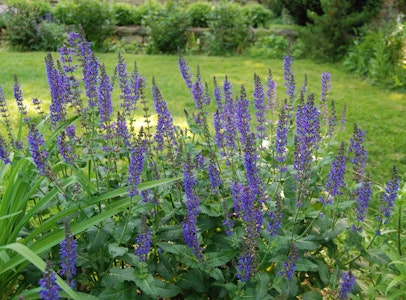
Horticulture Certificate Program
Our two-year certificate program covers horticultural science, methods, and design.
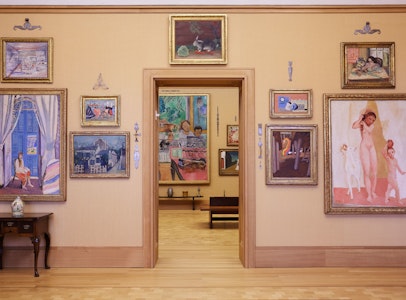
The Barnes–de Mazia Certificate Program
This special track offers an immersion in the Barnes Method and an introduction to other interpretive approaches.

Art, Well-Being, and Medicine
Our group workshops help medical students and healthcare professionals develop a more empathetic, humanistic approach to patient care.
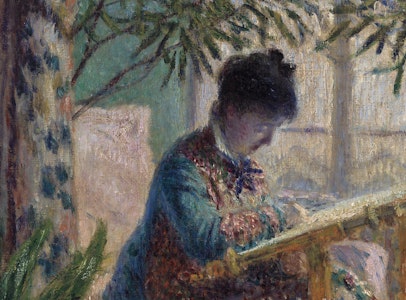
Gift a Barnes Class
Give the gift of lifelong learning with art history classes taught by Barnes experts.